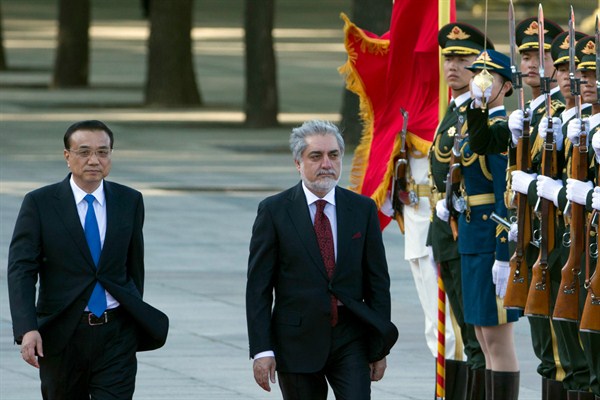Recent reports of Chinese security forces operating in Afghanistan have prompted speculation about whether China has crossed another important threshold in its policy and posture on overseas military activity. Claims of sightings of Chinese military vehicles in the Wakhan Corridor, the narrow strip of territory in northeastern Afghanistan that extends to the Chinese border, have been circulating since late last year. But it was only after a People’s Liberation Army press briefing in February that any activities were officially confirmed.
The PLA spokesperson denied the involvement of the Chinese military proper, stating that it was “the law enforcement departments in China and Afghanistan [that] carried out joint enforcement action to jointly combat terrorism and organized transnational criminal activities.” Nevertheless, this represents a striking development. It would not be the first time that Chinese security forces have been involved in joint operations outside Chinese territory, but it is the only known instance of their doing so specifically for counterterrorism purposes.
The details available are still very limited, and while some of them will doubtless dribble out, they are unlikely to be widely broadcast. Even a paramilitary presence in Afghanistan, in the shape of the People’s Armed Police, would be a point of sensitivity. Beijing has long been concerned about the reactions if its security forces were seen to be directly involved in missions of this sort, whether from militant groups in Afghanistan that might decide to make China a higher-priority target, or from broader opinion in the Muslim world, which might start to see China as the next “imperialist” power. The fact that Beijing is taking the risk of undertaking such operations at all reflects the convergence of several underappreciated trends, all of which are likely to lead to more Chinese counterterrorism activities in future.

